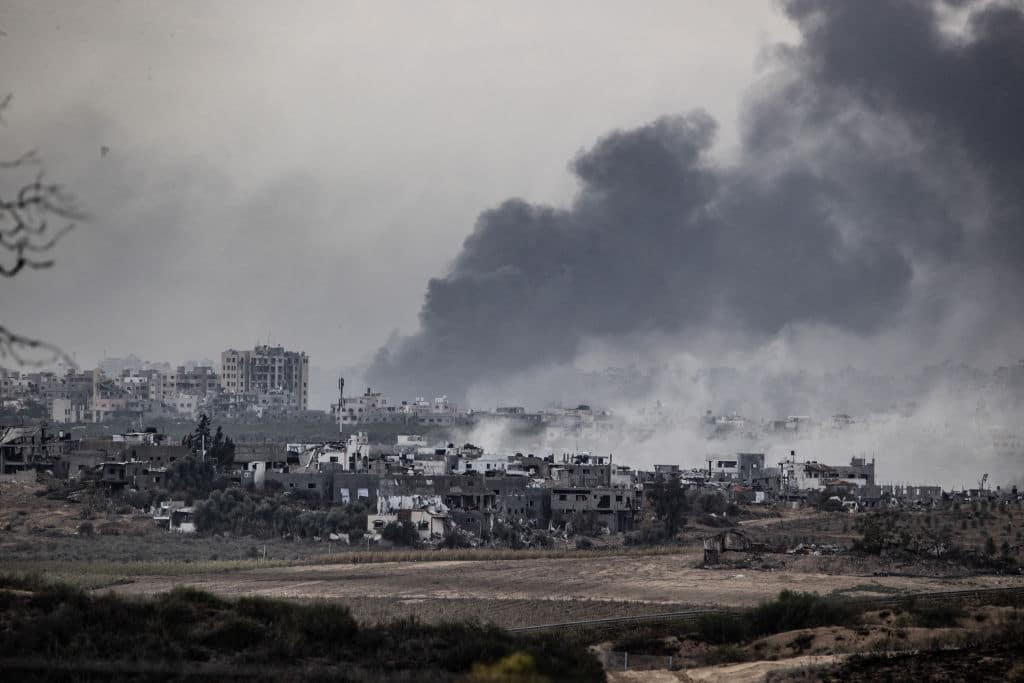South Africa’s National Assembly has voted in favor of suspending diplomatic relations with Israel, including closing its embassy, in response to the ongoing conflict in Gaza. This significant political move reflects escalating tensions and calls for a ceasefire and peace negotiations.
South Africa’s National Assembly voted yesterday to suspend diplomatic ties with Israel, as well as the closure of the Israeli embassy within the country, due to Israel’s continued war against Hamas in Palestine. The vote, which came hours after Israel recalled its ambassador to South Africa, passed with 248 votes in favor and 91 against. However, the vote is not binding unless enforced by President Cyril Ramaphosa.
The vote, initiated by opposition party Economic Freedom Fighters (EFF) and supported by the ruling African National Congress (ANC), called for a suspension of all diplomatic ties with Israel until a ceasefire is reached. Earlier this week during a virtual summit of the BRICS nations, chaired by President Ramaphosa, it issued a statement condemning attacks on civilians in Palestine.
The move was welcomed by the South African branch of the Boycott, Divestment and Sanctions (BDS) movement. “There is no role for diplomacy with a settler-colonial apartheid state that is guilty of genocide against a population that it occupies,” said SA BDS Coordinator Roshan Dadoo to FORBES AFRICA. “South Africa should not be having relations with a state that perpetrates war crimes with impunity, and treats the United Nations, international law, and the rest of the world with utter disdain.”
However, the National Assembly’s vote was not appreciated by all parties. The South African Jewish Board of Deputies (SAJBD) condemned the vote as pointless in light of Israel’s withdrawal of its ambassador for consultations, and condemned the chanting of “from the river to the sea” by some members of parliament “a chant which calls for the destruction of the only Jewish state, makes a mockery of the ANC’s stated position of supporting a two-state solution,” said Professor Karen Milner of the SAJBD in a statement.
Loading...
Both the Israeli ambassadors’ recall as well as the National Assembly vote indicate a further breakdown in diplomatic relations between Israel and South Africa, which has historically had strong political, historical, and ideological ties to Palestinians. The ANC-led government has long condemned the Israeli occupation of the West Bank and the treatment of Palestinians in Gaza, and it remains to be seen how this recent development will impact the already strained relations.
The resolution, titled ‘Closure of the Israel Embassy in South Africa and suspension of all diplomatic relations with Israel’, was presented by Julius Malema of the EFF. This parliamentary decision, while symbolic, reflects a long-standing stance of the South African government since Nelson Mandela’s presidency, likening the Palestinian struggle to the country’s own fight against apartheid. The ANC’s chief whip, Pemmy Majodina, emphasized the resolution’s call for a ceasefire and commitment to United Nations-facilitated peace negotiations.
President Ramaphosa has been vocally critical of Israel’s military actions in Gaza, urging the International Criminal Court to investigate potential war crimes.
This recent parliamentary vote, amidst the backdrop of escalating violence in Gaza and Israel’s strategic military campaign against Hamas, marks a pivotal moment in South Africa’s foreign policy, mirroring its historical commitment to human rights and international law. As the world watches, the actions of Ramaphosa’s administration in the coming days will be crucial in shaping the future of South Africa-Israel relations and, possibly, the broader geopolitical landscape in the Middle East.
Loading...
